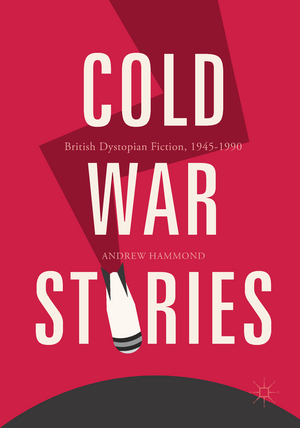Cold War Stories: British Dystopian Fiction, 1945-1990
Autor Andrew Hammonden Limba Engleză Hardback – 6 sep 2017
| Toate formatele și edițiile | Preț | Express |
|---|---|---|
| Paperback (1) | 489.84 lei 38-44 zile | |
| Springer International Publishing – 12 mai 2018 | 489.84 lei 38-44 zile | |
| Hardback (1) | 689.41 lei 43-57 zile | |
| Springer International Publishing – 6 sep 2017 | 689.41 lei 43-57 zile |
Preț: 689.41 lei
Preț vechi: 811.07 lei
-15% Nou
Puncte Express: 1034
Preț estimativ în valută:
131.92€ • 138.08$ • 109.80£
131.92€ • 138.08$ • 109.80£
Carte tipărită la comandă
Livrare economică 31 martie-14 aprilie
Preluare comenzi: 021 569.72.76
Specificații
ISBN-13: 9783319615479
ISBN-10: 3319615475
Pagini: 143
Ilustrații: V, 168 p.
Dimensiuni: 148 x 210 mm
Greutate: 3.34 kg
Ediția:1st ed. 2017
Editura: Springer International Publishing
Colecția Palgrave Macmillan
Locul publicării:Cham, Switzerland
ISBN-10: 3319615475
Pagini: 143
Ilustrații: V, 168 p.
Dimensiuni: 148 x 210 mm
Greutate: 3.34 kg
Ediția:1st ed. 2017
Editura: Springer International Publishing
Colecția Palgrave Macmillan
Locul publicării:Cham, Switzerland
Cuprins
1. Introduction.- 2. Cold War Anxieties.- 3. A Weakened Nation.- 4. The Art of Dystopia.
Recenzii
“There are interesting snippets of cultural history—secret service espionage, fear of Soviet invasion, the growth of the European Economic Community—and I learned a lot.” (Andrew M. Butler, Science Fiction Studies, Vol. 46, 2019)
Notă biografică
Andrew Hammond is Senior Lecturer in English Literature at the University of Brighton, UK. His research interests are Cold War fiction, twentieth-century British fiction, postcolonial literature and theory and cross-cultural representation. Previous publications include The Novel and Europe (editor, 2016), British Fiction and the Cold War (2013) and British Literature and the Balkans (2010).
Caracteristici
This is the first comprehensive study of modern British dystopian fiction Addresses dystopian concerns which are rarely studied in scholarship Argues that the British dystopian tradition evolved out of specific features of national experience, such as Britain’s engagement in the Cold War, the nation’s loss of global prestige and the declining status of literature in national culture Includes supplementary material: sn.pub/extras
